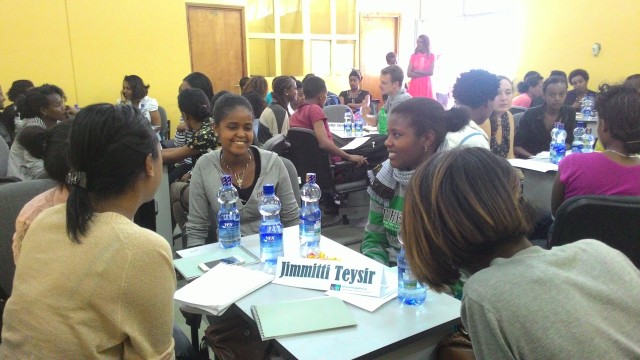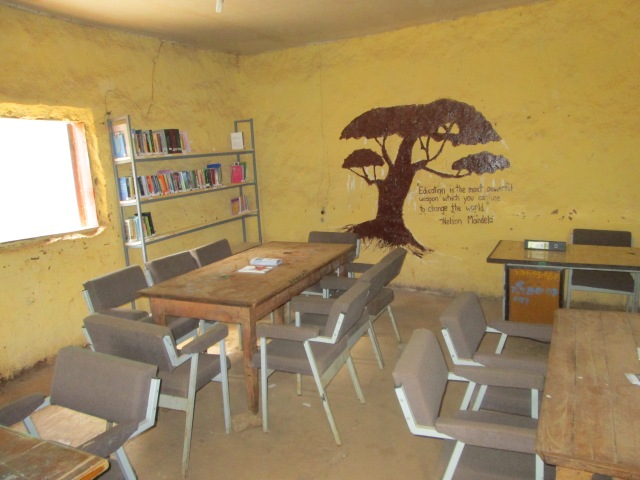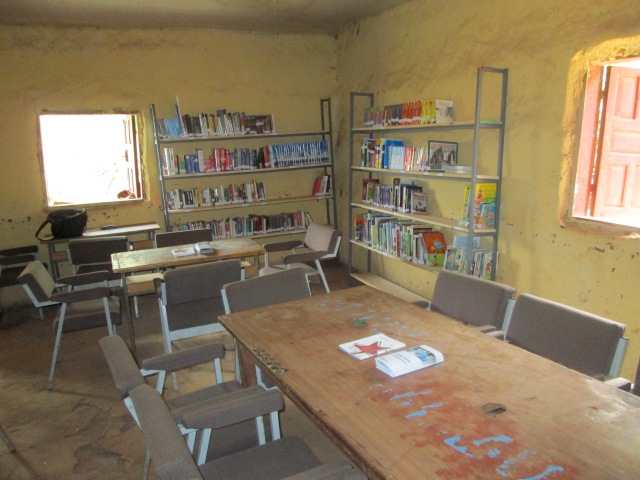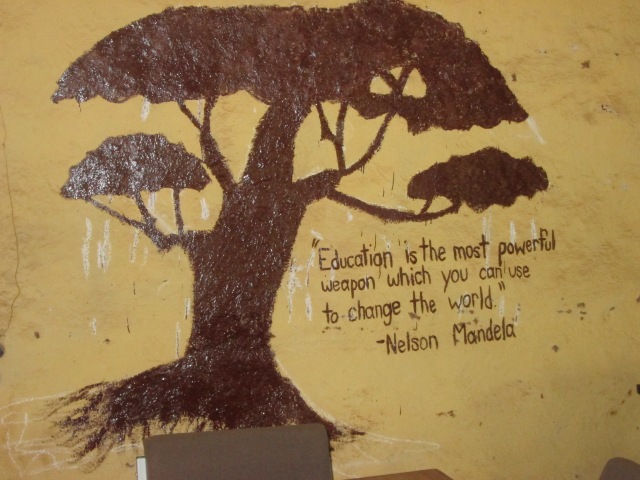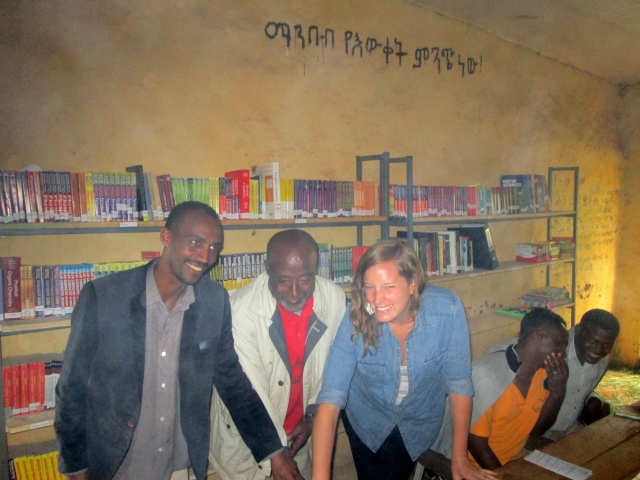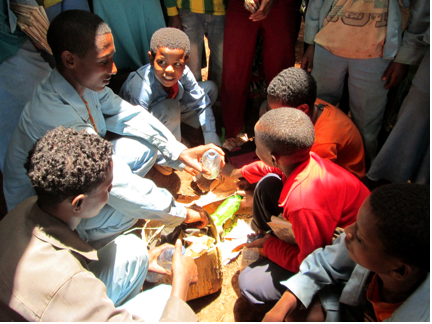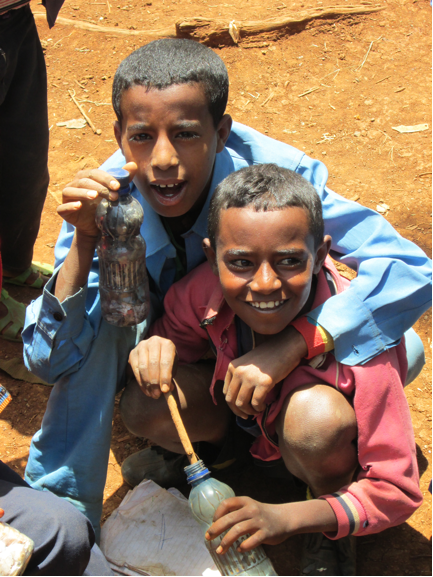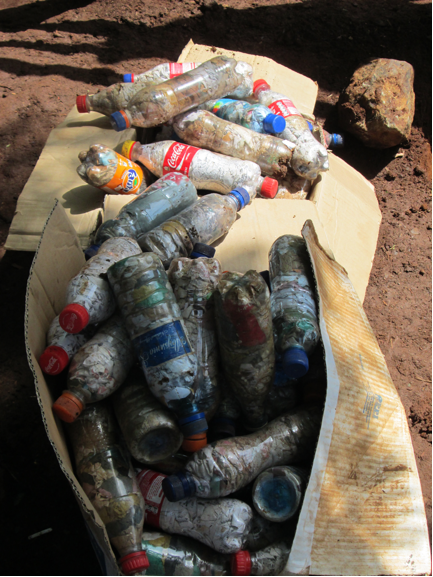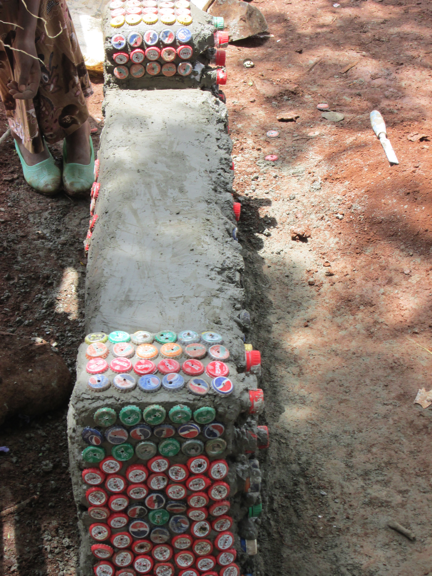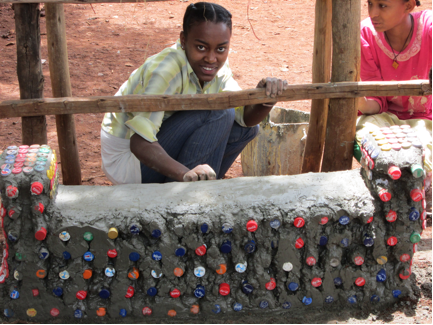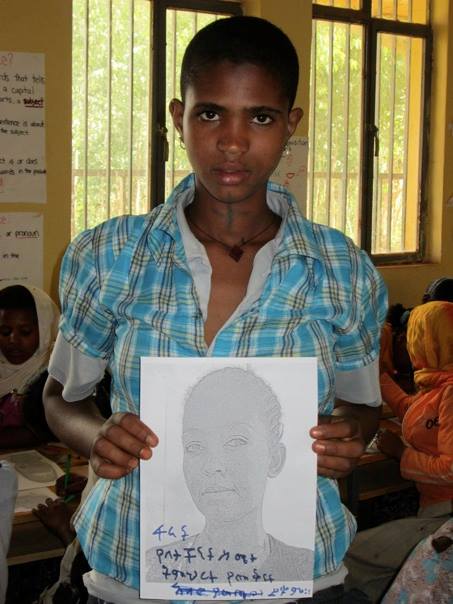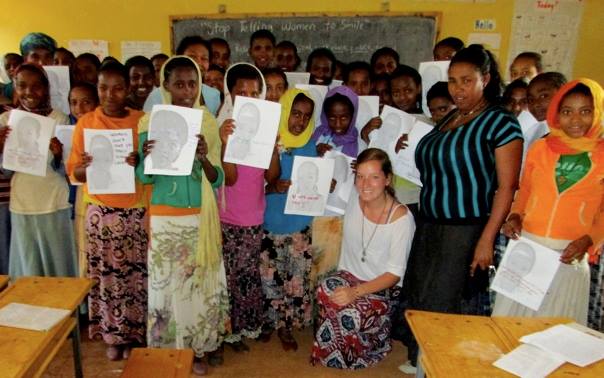I’ve come to associate routine activities, like going to school, running errands in town, or going to the market, with the different groups of kids I know I’ll see along the way. On the walk to school, for instance, I know I’ll meet the beauty queens: a team of six sassy six-year-olds who all sport unparalleled “cool girl” swagger.
Then around the market area, I know I’ll see the tough kids: anywhere from 10 to 20 elementary school boys who always scream “Erin! Erin! Erin!!!!! JOHN SENAAAAAA!!!!!” in my direction (because even after two years, apparently watching me wave a hand in front of my face like a WWF star isn’t old news).
Closer to town are the little girls who kiss my hands, while around the church are the wild munchkins, kids who I know will either be up in the trees, down in the mud or all over the place, running around.
After two years in Adet, I figured I knew all these primary school cliques inside and out. So imagine my surprise when I rounded the first corner to town this morning, instinctively expecting the same group of four brothers to run by my side, only to find that the oldest brother is actually a sister! In the past, I always assumed this “little boy” occasionally wore an older sister’s (or cousin’s or neighbor’s) dress during family laundry day, but it turns out (in light of the fact that today he sported cornrows and pierced ears) that he occasionally wore dresses because… he is a she! He is the older sister/neighbor/cousin!
I had to stop walking and catch my breath. Even after two years, I’m still learning so much every day! I’m still learning so much about Ethiopia! About myself! About the world!
I think that’s the single most important reason why Peace Corps service is such a beautiful thing; why retuned volunteers always call their experiences “life changing.”
As volunteers, we’re constantly growing. We’re constantly learning. We’re constantly learning that little boys are actually little girls.
About a year ago, a friend insightfully dubbed these everyday mind-blowing, eye-opening wonders—the similar, yet distinct lessons that all PCVs share—as “oh shit” moments. As I think you’ll soon agree, never has there been a more appropriate or more accurate term.
Like, “Oh shit! I’ve been calling my neighbor’s pets ‘goats’ for 17 months, but this morning, she told me they’re actually sheep!” Or, “Oh shit! So what do goats actually look like????”
Many oh shitters, some of the best, most uplifting oh shit moments, come after months and months of blindness, in what I like to think of as life’s magically rare “oh shit epiphanies.”
I didn’t realize until very recently (as one extremely inspirational, this-should-be-on-the-Peace-Corps-website example) that my host mom and I regularly communicate with sound effects.
“Psh! Psh! Psh!” means grinding coffee, while “Pish! Pish!” means “I have fleas!” or, “Do you have fleas?” and “PSHHH!!!” means punching someone in the face (yes, my devout Muslim host mother and I frequently discuss hypothetically punching people in the face).
You may notice that many of these sound effects seem very similar. Many times, what distinguishes one from the other is (first and most obviously) the corresponding hand motion, but more importantly, it is the emotional, heartfelt, mind reading-esque bond I that share with Mom.
When I returned home from school the other afternoon and found her hosting an outdoor coffee ceremony with several neighborhood women, she cheerfully beamed, “Erin! Put your things down and come drink coffee!” with the sudden afterthought, “Psh! Psh! Psh! Tomorrow!”
Though I instantly understood this as, “Tomorrow, I’ll also grind some coffee beans for you to have in your house,” the women all stared like she had grown 10 heads.
It took seconds of awkwardness (and awkward stares) for me to finally realize… “Oh shit (epiphany)! Mom and I really have something special!”
(While the other women simultaneously realized, “Oh SHIT! Erin’s really pushing Enana off the deep end!”) You see? Oh shit moments affect everyone. And they affect everyone in very different, special, glorious oh shit ways.
That’s something else I find really beautiful about my Peace Corps service: I’m constantly changing the way people see the world—even the world right around them.
Just the other afternoon, I told my friend Mihrtab that I think Avola Mountain, Adet’s most conspicuous landmark, looks a lot like a giant boob protruding from the earth… like Mother Nature’s boob, if you will. A couple days later, when I ran into him with a group of colleagues (lawyers and judges from the local court) he immediately exclaimed, “Oh! Erin’s the one who realized that Avola should be Boob Mountain (“Toot Tarara,” in Amharic)!” And as would be expected, they “oohed” and “ahhed,” and praised me as the nature genius I am.
Much better than my newly improved status with Adet’s High Court, however, is that (just think!) for the rest of their lives, these old men are going to look up at Avola and see it for what it really is. They’re going to look up and see a giant green boob.
And, “Oh shit! Their lives are better because of me.”
You see, my neighbors and I are constantly learning from each other, learning about each other, and learning new ways to relate to one another. Even if nothing else comes from my Peace Corps service, I know that will be enough.
(But I really hope the town administration officially renames Avola as “Toot Tarara,” and I really hope Enana opens her own sound effects language school.)
(Oh, and I hope I never again confuse a sheep with a goat.)

